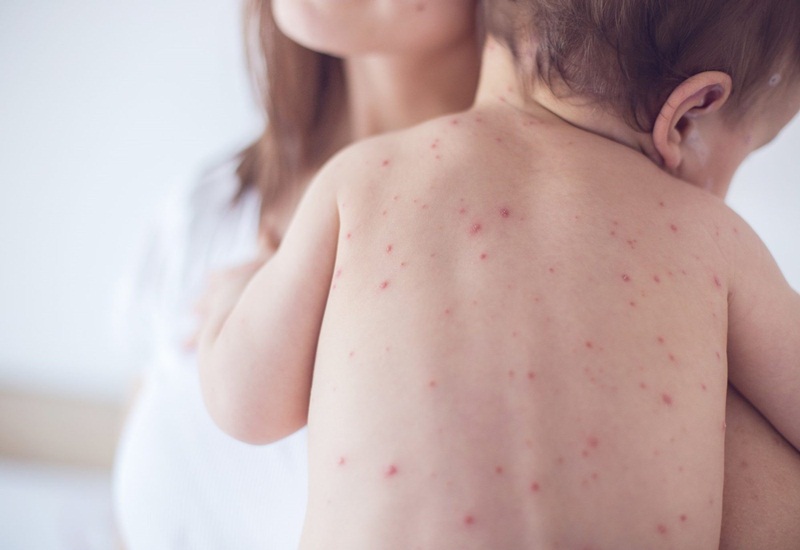
DiYES International School – Dengue fever is a dangerous viral infection that is particularly concerning for infants. As babies are more vulnerable to the disease due to their developing immune systems, early detection and proper care are crucial. When parents fail to recognize the initial symptoms of dengue fever, it can lead to more severe complications. During the rainy season, the risk of dengue increases, and it is important for parents to stay vigilant.
Dengue fever is a common illness in tropical countries like Indonesia, caused by the dengue virus. It is transmitted through the bite of an Aedes mosquito, and anyone, including babies, can be infected. Knowing the early signs of dengue fever can help parents respond quickly and seek appropriate medical care for their babies.
“Read about: Born with a Foot Deformity: South Nias Child’s Condition Not Due to Abuse”
Some common symptoms that parents should be aware of include:
The baby may experience a high fever, typically ranging from 39°C to 41°C, lasting for 2 to 7 days. Parents should monitor the baby’s temperature using a thermometer, as relying on touch may be inaccurate.
Babies with dengue fever may show signs of nausea, vomiting, and stomach pain. These symptoms often make babies more irritable, which is a key indicator of the disease.
A significant drop in appetite, where the baby refuses to breastfeed or take food, is another common symptom. This is often accompanied by general discomfort and fussiness.
The baby may appear unusually tired, lethargic, and less responsive. This is due to the body’s energy being drained as it fights the infection.
Babies with dengue fever often cry persistently due to discomfort and pain. This may be much more frequent or intense than usual.
A red rash on the baby’s skin may appear, which could be a sign of a dengue infection.
Nosebleeds or gum bleeding can occur, which is a more serious sign of severe dengue fever.
If you notice blood in the baby’s urine, stool, or vomit, this can be an alarming sign of the severity of the infection.
Difficulty breathing can be a severe symptom, and parents may hear abnormal breathing sounds such as wheezing or snoring.
Identifying these signs early can help parents manage the situation better and seek medical assistance before the condition worsens.
Once parents identify the early symptoms of dengue fever, prompt medical intervention is crucial. While waiting to see a healthcare professional, parents can take the following steps to provide relief:
“Read more: Accelerated Classes for Children: What You Need to Consider”
Keep the baby well-hydrated. For babies under 6 months, breast milk or formula should be provided. For older babies, you can offer fluids such as water or oral rehydration solutions.
If the baby has a fever, it is important to manage it properly. Parents should consult with a doctor regarding appropriate fever-reducing medications. Never administer medications without professional advice.
Adequate rest is essential for the baby’s recovery. Make sure the baby gets plenty of sleep and is kept in a calm, quiet environment to prevent unnecessary exhaustion.
Parents should regularly check the baby’s temperature to monitor for any changes. A thermometer should be kept handy to ensure consistent monitoring.
Always consult with a healthcare provider as soon as possible. Medical professionals can offer proper guidance on the best course of treatment.
It is important to avoid activities that can strain the baby, such as unnecessary movement or play. The baby’s body needs rest to fight the infection.
Prevention is key to protecting your baby from dengue fever. The following measures can help reduce the risk of mosquito bites:
Regularly check your home for stagnant water in flower pots, buckets, or any containers, as mosquitoes breed in such areas.
Use mosquito nets around the baby’s crib, especially during sleep, to prevent mosquito bites.
Install window screens or mesh barriers to prevent mosquitoes from entering the home.
When appropriate, apply baby-safe mosquito repellent to your baby’s skin. Consult with your pediatrician for safe products.
Keep your baby’s environment clean and free from any potential mosquito breeding sites.
Ensure your baby receives proper nutrition, especially after 6 months of age, to strengthen their immune system.
By taking proactive measures to eliminate the risk of mosquito bites, parents can reduce the chances of their baby contracting dengue fever.
Dengue fever can be a serious illness, especially for babies, and requires immediate attention. Recognizing the symptoms early and providing proper care can help ensure your baby recovers quickly. Always seek medical advice if you suspect your baby has dengue fever, and take the necessary precautions to prevent exposure to mosquitoes.